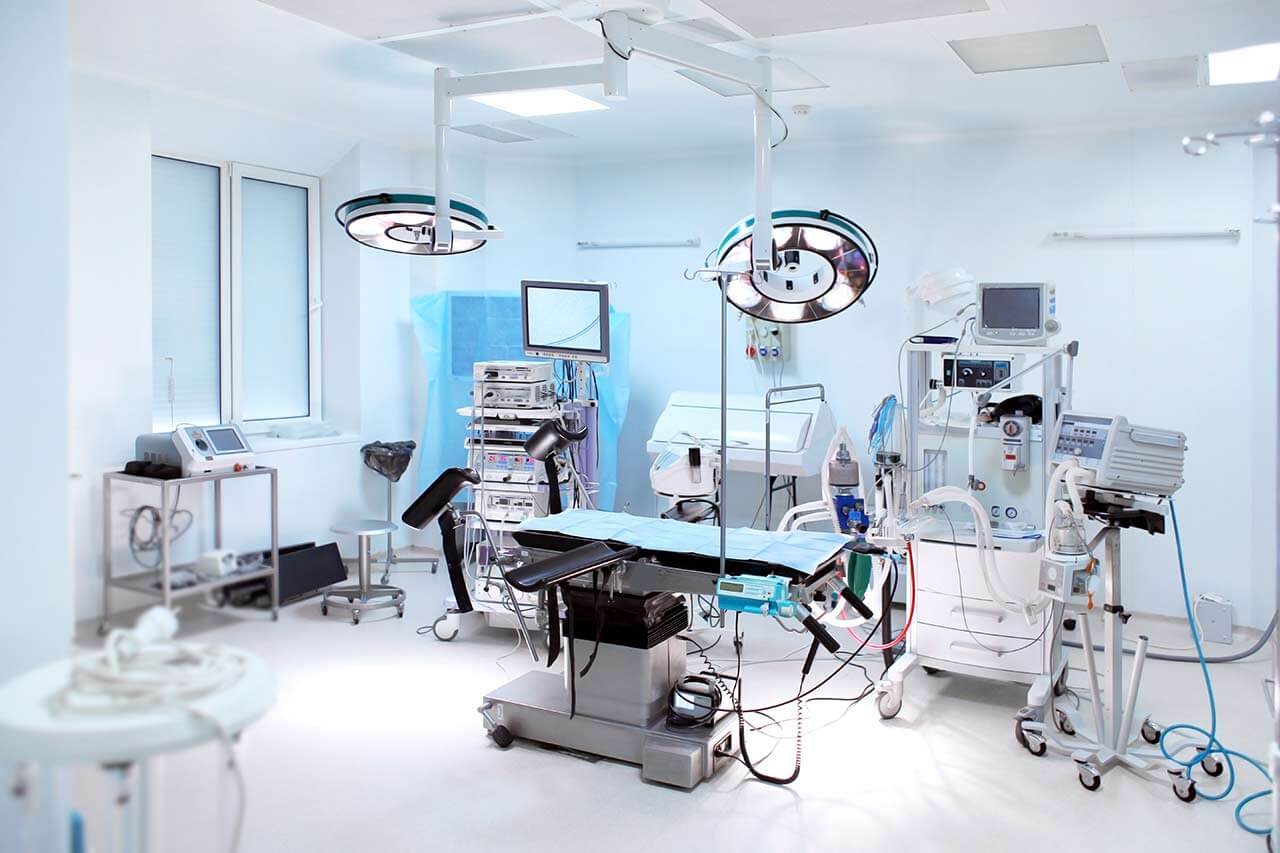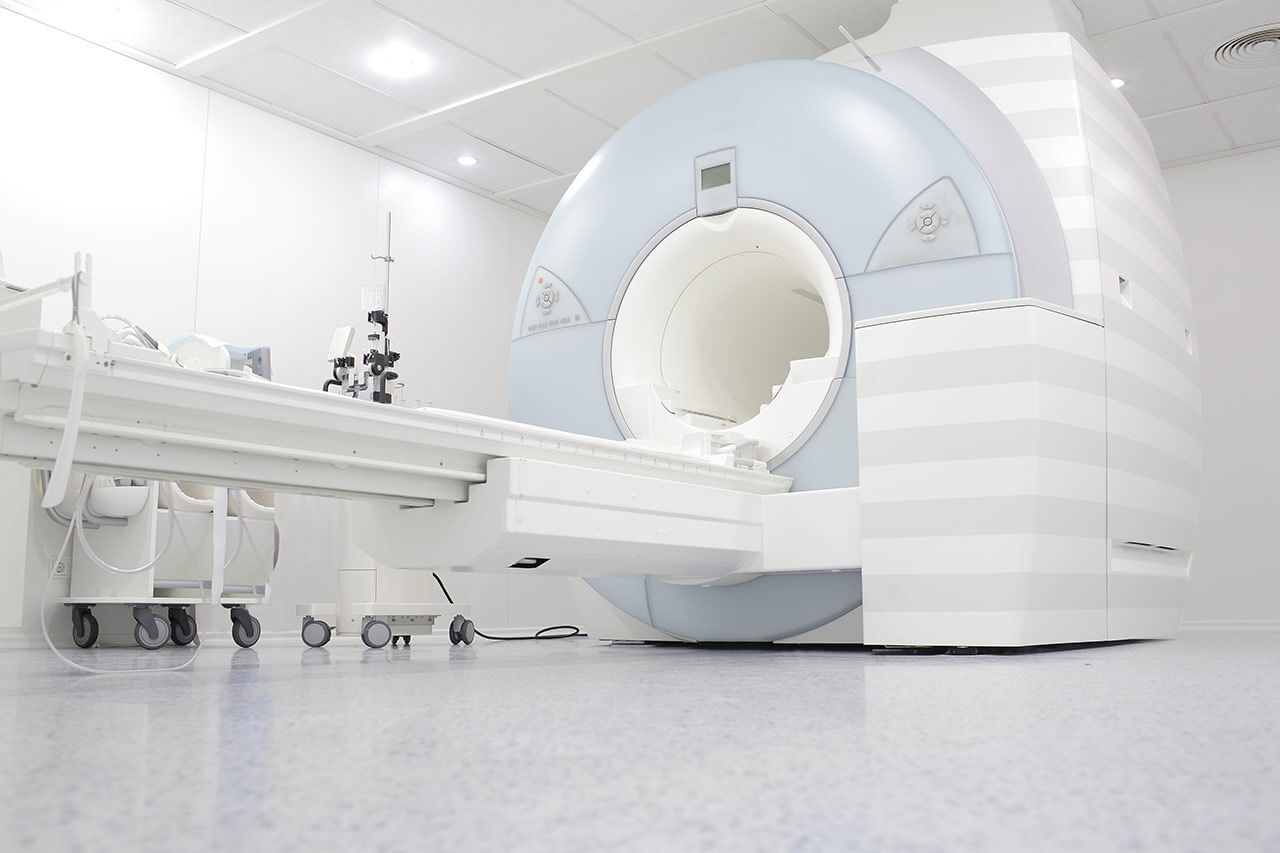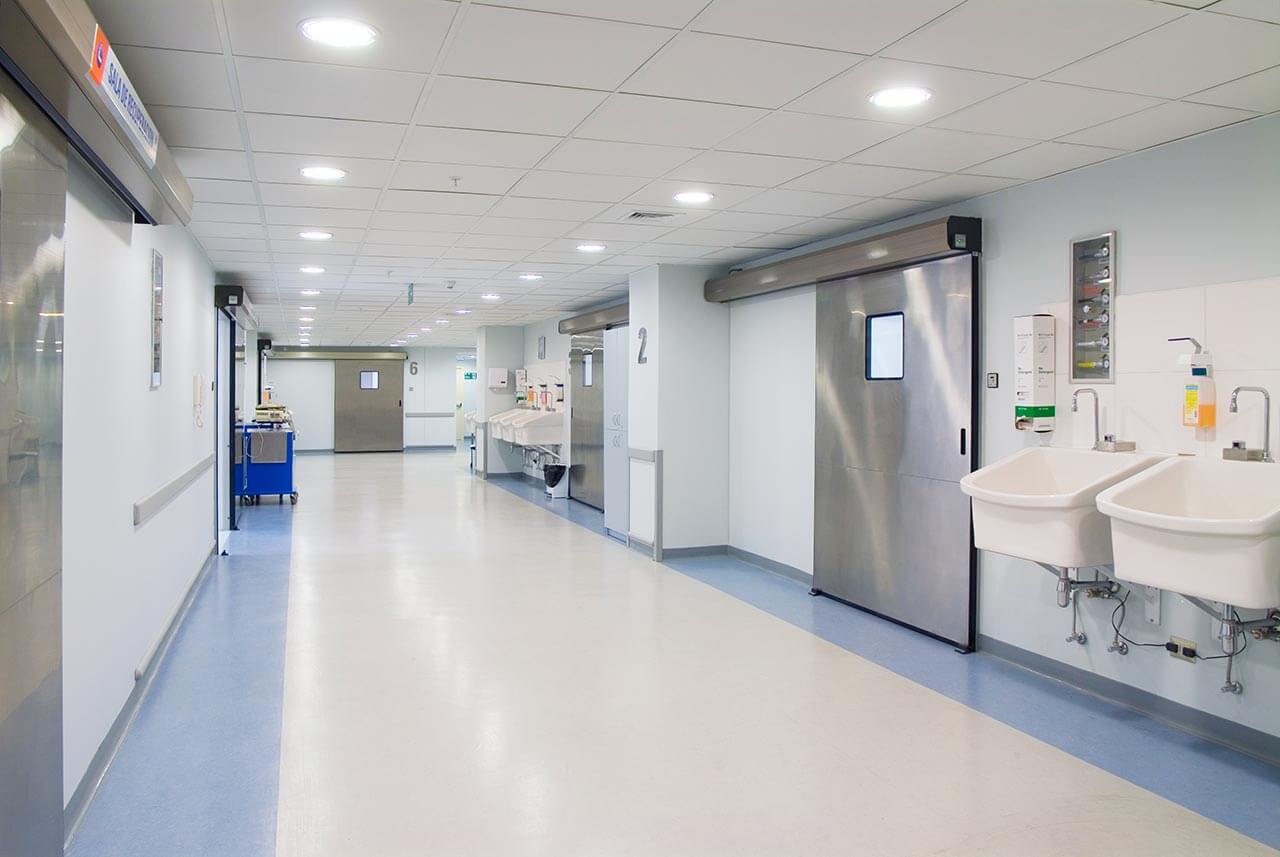
The program includes:
- Initial presentation in the clinic
- clinical history taking
- review of medical records
- physical examination
- laboratory tests:
- complete blood count
- general urine analysis
- biochemical analysis of blood (general and ionized calcium)
- inflammation markers (CRP, ESR)
- hormone test (TSH, parathyroid hormone)
- bones x-ray
- bone mineral density measurement
- multiphase scintigraphy (if clinically indicated, additional cost is1500€)
- nursing services
- consultation of related specialists
- treatment by chief physician and all leading experts
- explanation of individual treatment plan
- written statement
Required documents
- Medical records
- Densitometry (if available)
Service
You may also book:
 BookingHealth Price from:
BookingHealth Price from:
About the department
The Department of Nephrology, Rheumatology and Endocrinology at the University Hospital Halle (Saale) offers a full range of medical services in the areas of its competence. The department provides qualified medical care for patients with kidney diseases, arterial hypertension, rheumatic diseases, thyroid, parathyroid, and adrenal pathologies. Special attention is paid to the treatment of kidney damage due to arterial hypertension and diabetes mellitus, acute and chronic kidney pathologies, rheumatic diseases, including collagenosis, thyroid diseases, and diabetes mellitus. The specialists of the department are also competent in the preparation of patients for kidney transplantation and subsequent postoperative monitoring. It should be noted that the department is part of the Transplant Center, which was established in 1974 and performs more than 50 kidney transplants annually. The department's therapeutic options include drug therapy, renal replacement therapy (dialysis), plasmapheresis, immunophoresis, and other procedures. Patients receive medical care on both an inpatient and outpatient basis. The department's team of doctors is justifiably proud of its excellent treatment success rates. The medical facility is certified according to the standards of the German Society of Nephrology (DGN). The Head Physician of the department is Prof. Dr. med. Matthias Girndt.
Nephrology is one of the priority areas of work of the medical team of the department. The healthcare facility provides inpatient and outpatient medical care for patients with glomerulonephritis, kidney lesions due to arterial hypertension and diabetes mellitus, kidney damage due to autoimmune diseases, infectious kidney diseases, and hereditary kidney diseases. In addition, the department's doctors have extensive clinical experience in the treatment of patients with systemic vasculitis and cardiorenal syndrome, a pathological condition characterized by a combined kidney and heart failure. Patients with nephrological diseases have access to advanced diagnostic rooms with the ability to perform classical ultrasound scans and duplex sonography of the kidneys. The full range of laboratory diagnostics is also available here. When kidney cancer is suspected, the specialists of the department perform a biopsy followed by a histological examination. As for the treatment, the department uses various therapeutic methods, ranging from drug therapy to renal replacement therapy (hemodialysis, hemodiafiltration, and peritoneal dialysis), plasmapheresis, immunophoresis, and radiofrequency ablation of the renal sympathetic nerves (renal denervation) for severe forms of arterial hypertension. Treatment tactics are planned based on the patient's diagnostic data and individual needs.
The department also has a highly professional team of rheumatologists who are responsible for the diagnosis and treatment of arthritis, collagenosis, vasculitis, and rare rheumatic diseases. Orthopedists, neurologists, dermatologists, and other specialists are involved in the therapeutic process for comprehensive treatment of rheumatism. Arthritis is treated with pharmacotherapy using various groups of drugs, exercise therapy, physiotherapy, massage, and other methods. The specialists of the department treat collagenosis with drug therapy using nonsteroidal anti-inflammatory drugs, glucocorticoids, cytostatics, and other drugs, physiotherapy, exercise therapy, and plasmapheresis. The first-line treatment for vasculitis is nonsteroidal anti-inflammatory drugs, corticosteroids, and symptomatic therapy; in complex clinical cases, plasmapheresis may be required.
The department's therapeutic offer is complemented by the treatment of endocrine diseases, with a special emphasis on medical care for patients with diseases of the thyroid gland, parathyroid glands, adrenal glands, and pituitary gland. The department's team of endocrinologists also specializes in the treatment of all types of diabetes mellitus, including gestational diabetes and MODY. Depending on the type of diabetes mellitus, insulin therapy, drug therapy with oral hypoglycemic drugs, diet therapy, and physical exercise may be prescribed to compensate for it. The department also treats patients with insulin resistance and diabetic foot syndrome.
The department's range of medical services includes the following options:
- Nephrology
- Diagnostics and treatment of glomerulonephritis
- Diagnostics and treatment of kidney lesions due to diabetes mellitus and arterial hypertension
- Diagnostics and treatment of kidney lesions due to autoimmune diseases (for example, systemic lupus erythematosus and vasculitis)
- Diagnostics and treatment of hereditary kidney diseases
- Diagnostics and treatment of infectious kidney diseases
- Diagnostics and treatment of kidney diseases of unknown genesis
- Diagnostics and treatment of complex forms of arterial hypertension and hypertensive crisis
- Comprehensive medical care before and after kidney transplant surgery
- Rheumatology
- Diagnostics and treatment of arthritis
- Diagnostics and treatment of inflammatory lesions of the spine and joints caused by rheumatism
- Diagnostics and treatment of collagenous
- Diagnostics and treatment of vasculitis
- Diagnostics and treatment of rare rheumatic diseases
- Endocrinology
- Diagnostics and treatment of thyroid diseases, including endocrine orbitopathy and thyroid pathologies during pregnancy
- Diagnostics and treatment of osteoporosis
- Diagnostics and treatment of parathyroid diseases
- Diagnostics and treatment of pituitary diseases
- Diagnostics and treatment of adrenal diseases
- Diagnostics and treatment of hyperandrogenism
- Diagnostics and treatment of endocrine infertility
- Diagnostics and treatment of water and electrolyte imbalance
- Diagnostics and treatment of thyroid, parathyroid, adrenal, and pituitary tumors
- Diagnostics and treatment of obesity caused by hormonal imbalances
- Diagnostics and treatment of lipid metabolism disorders
- Diagnostics and treatment of diabetes mellitus types 1 and 2, gestational diabetes mellitus, and MODY
- Diagnostics and treatment insulin resistance
- Diagnostics and treatment of diabetic foot syndrome
- Other medical services
The department's therapeutic options include the following:
- Drug therapy
- Renal replacement therapy (dialysis)
- Hemodialysis
- Hemodiafiltration
- Peritoneal dialysis
- Blood purification procedures
- Plasmapheresis
- Immunophoresis
- Renal denervation
- Hormone replacement therapy
- Insulin therapy, including insulin pump therapy
- Comprehensive medical care for patients before and after kidney transplant surgery
- Other treatment methods
Curriculum vitae
Higher Education and Professional Career
- 1984 - 1986 Medical studies, Georg August University of Goettingen.
- 1986 - 1990 Medical studies, Johannes Gutenberg University Mainz.
- 1991 - 1992 Internship, Department of Internal Medicine I, University Hospital Mainz.
- 02.1991 Doctorate.
- 07.1991 Medical license.
- 1992 Internship, European College of Transplantation, Rome, Italy.
- 1992 - 1993 Scientific training in the Immunology Laboratory, Department of Pathophysiology, University of Mainz.
- 1993 - 2000 Residency, Department of Internal Medicine IV, University Hospital Saarland Homburg.
- 1993 - 2001 Coordinator of the Kidney Transplant Program.
- 04.1999 Board certification in Internal Medicine.
- 05.2000 Senior Physician, Department of Internal Medicine IV, University Hospital Saarland Homburg.
- 02.2001 Habilitation and Venia legendi in Internal Medicine.
- Since 02.2001 Managing Senior Physician, Department of Internal Medicine IV, University Hospital Saarland Homburg.
- 09.2001 Nils Alwall Award by the German Working Group for Clinical Nephrology.
- 07.2002 Specialization in Nephrology.
- 10.2005 Specialization in Hypertension, German Hypertension League (DHL).
- 10.2007 Extraordinary Professorship, Faculty of Medicine, Saarland University.
- 09.2008 W3 Professor for Nephrology, Martin Luther University Halle-Wittenberg.
- 10.2010 - 09.2014 Chairman of the Habilitation Committee, Faculty of Medicine, Martin Luther University Halle-Wittenberg.
- 12.2011 Specialization in Lipidology, German Society for Lipidology (DGFL).
- Since 07.2014 Head Physician, Department of Nephrology, Rheumatology and Endocrinology, University Hospital Halle (Saale).
- 2014 - 2022 Dean, Faculty of Medicine, Martin Luther University Halle-Wittenberg.
- 08.2016 Additional qualification in Transplant Surgery, Medical Association of Saxony-Anhalt.
- 08.2017 Permission for postgraduate training in Transplant Surgery.
Clinical Interests
- Comprehensive medical care for kidney diseases, arterial hypertension, and lipid metabolism disorders.
- Diagnosis of acute and chronic kidney diseases.
- Treatment of arterial hypertension, including complex and secondary forms of pathology.
- Treatment of systemic diseases with kidney lesions.
- Dialysis, plasmapheresis, and immunoadsorption.
- Kidney transplant, including living donor transplants and incompatible blood type kidney transplants.
- Treatment of severe lipid metabolism disorders.
Research Interests
- Immunodeficiency in chronic kidney disease.
- Infectious complications after organ transplant surgery.
- Inflammatory processes and atherosclerosis in dialysis patients.
- Epidemiology of chronic kidney failure.
Photo of the doctor: (c) Universitätsklinikum Halle (Saale)
About hospital
According to the prestigious Focus magazine, the University Hospital Halle (Saale) is one of the best medical institutions in Germany!
The history of the hospital goes back more than 300 years, and during this time it has managed to gain an excellent reputation not only in Germany, but also throughout the world. The hospital positions itself as a specialized healthcare facility for the treatment of severe and rare diseases and injuries. The hospital provides medical care to patients of all ages in compliance with the latest scientific achievements. The hospital is distinguished by successful research activities, especially in the field of cardiovascular diseases and oncopathologies – the specialists in these areas have made significant contributions to the development of the very latest diagnostic methods and therapeutic approaches.
The University Hospital Halle (Saale) has 30 specialized departments representing almost all areas of modern medicine, as well as 17 narrowly focused institutes. About 35,000 patients receive qualified medical care of European standards in the hospital every year, and more than 212,000 patients are served on an outpatient basis. This number of patients is evidence of the high efficiency of medical services and the excellent image of the hospital in the international medical arena; patients from all over the world regularly seek medical attention here.
Some of the hospital's structural units deserve special attention. For example, the Central Emergency Department (the largest in Saxony-Anhalt), modern dental clinics, the Perinatal Center, and the Transplant Center, which has a history of more than 40 years. The Transplant Center performs more than 40 kidney transplants annually, most of them from living donors.
Thanks to the use of the latest medical technologies and the availability of state-of-the-art equipment, many previously high-risk surgeries and procedures can now be performed in the hospital using sparing techniques. In this context, hybrid cardiac surgery and robotic surgery using the innovative da Vinci Si® system in urology are worthy of mention.
An integral part of the successful clinical practice of the University Hospital Halle (Saale) is the availability of experienced and competent medical staff. The total number of employees at the hospital is more than 4,450. Many physicians are known far beyond the borders of Germany: they regularly conduct important research that enables the development of modern medicine. In addition, the hospital specializes in training medical students, so qualified doctors and professors are willing to pass on their experience to the younger generation.
The hospital has many quality certificates such as DIN EN ISO 9001:2015 certificate, German Cancer Society (DKG) certificate, JACIE certificate, EndoCert certificate, ClarCert certificate, German Spine Society (DWG) certificate, German Trauma Society (DGU) certificate, CERT iQ certificate, LGA InterCetert certificate, and others.
Photo: (с) depositphotos
Accommodation in hospital
Patients rooms
The patients of the University Hospital Halle (Saale) stay in comfortable single, double, and triple rooms with a modern design. All patient rooms have an ensuite bathroom with a toilet and a shower. The standard patient room includes a comfortable automatically adjustable bed, a bedside table, a wardrobe, a table and chairs for receiving visitors, a TV, a radio, and a telephone. The patient rooms have access to Wi-Fi. For safety reasons, the use of laptops and cell phones is prohibited in some areas, including the intensive care units. The hospital also offers enhanced-comfort patient rooms.
Meals and Menus
The hospital offers delicious and well-balanced meals three times a day: breakfast, lunch, and dinner. Patients and their companions can choose from three daily menus, which always include dietary dishes. If necessary, an individual menu can be prepared for the patient. Children are offered a special menu with healthy and tasty dishes, rich in nutrients necessary for a growing body.
Further details
Standard rooms include:
![]() Toilet
Toilet
![]() Shower
Shower
![]() Wi-Fi
Wi-Fi
![]() TV
TV
Religion
Religious services are available upon request.
Accompanying person
Your accompanying person may stay with you in your patient room or at the hotel of your choice during the inpatient program.
Hotel
Your accompanying person may stay with you in your patient room or at the hotel of your choice during the inpatient program.




